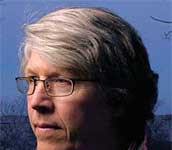
An audio transcript (written transcript also available) from Beyond the Book:
Developed by a European consortium coordinated by the Italian Publishers Association (AIE), ARROW — Accessible Registries of Rights Information and Orphan Works — is a system to help libraries with the identification of rights status and rightsholders in digital library programs. ARROW is based on a pro-active search of rightsholders for works eligible for inclusion in any digitization program, and indirectly is a tool for the identification of so-called “orphan works.”
ARROW’s coordinator is Piero Attanasio, Head of International Projects, the Italian Publishers Association (AIE). He explained to CCC’s Chris Kenneally how the project meets one objective while approaching a solution for another. “ARROW was considered since the beginning to save the parents, not to identify the orphans,” he said. “That means to reconnect the works to the parents, that are the authors and the publishers.”
The dilemma of orphan works haunts rightsholders and users worldwide, particularly at this moment of mass digitization by libraries and others. “Whether the motivation was pure preservation of materials that were going to decline in quality over a period of time, or whether the motivation was simply to make wider and wider access over a network environment,” Michael Healy, Executive Director, The Book Rights Registry, noted, “you immediately encounter the constraints of the existing legislative and legal regimes. And those two things are not working in harmony anywhere right now.”
The Arrow System: Rights Management In Mass Digitization: A European Approach was presented at the2011 Global Market Forum (featuring Publishing in Italy) as part of BookExpo America 2011






























Not the clearest thing to read through… but I gather that the point of Arrow isn’t the actual infrastructure of databases that will provide data to recover orphan works, it’s actually coordinating the data from all those databases in a standardized manner.
Either way, I wish them luck with the process, and hope that it becomes available to more commercial needs as well.
Explain to me what an “audio transcript” is.
Also, your slug sucks.
I’m concerned that an NGO is becoming (has become?) authoritative on matters of government issued copyrights.